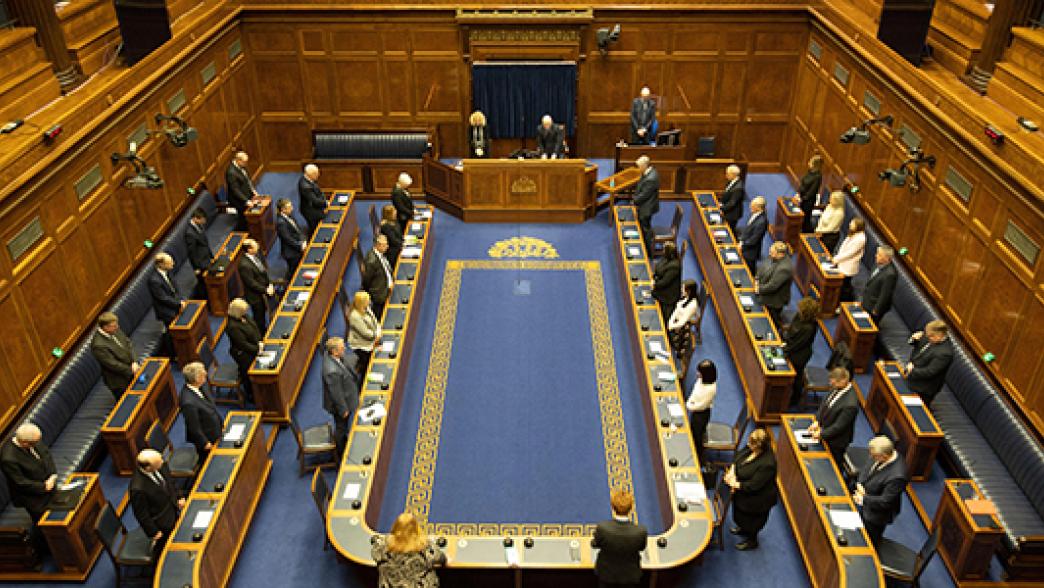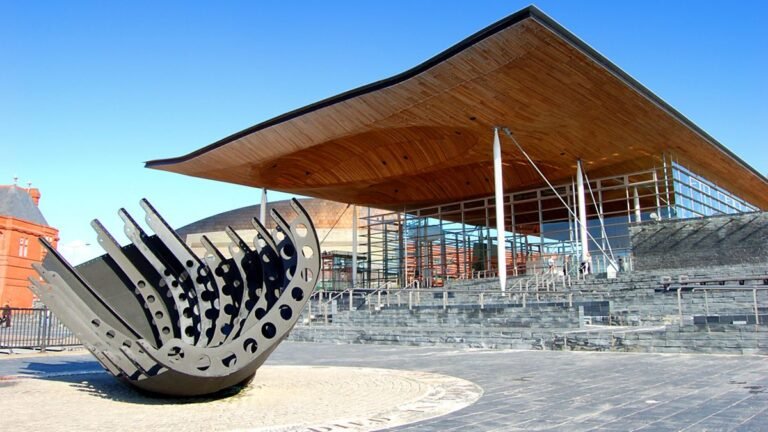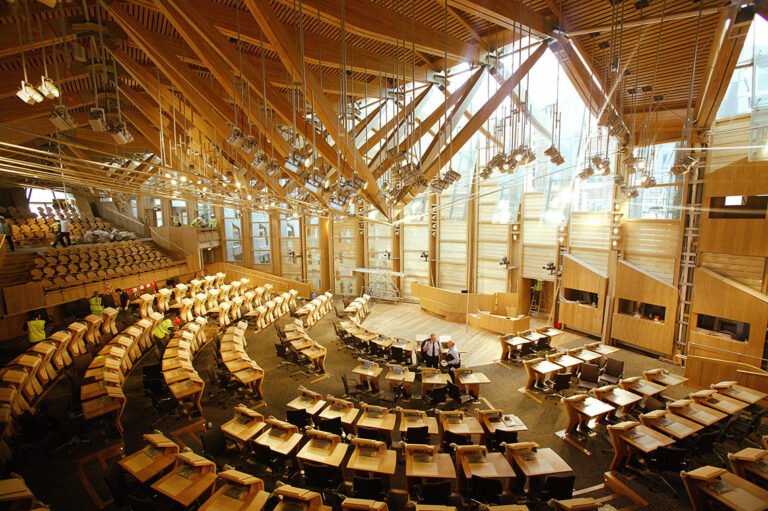The Northern Ireland Assembly is the legislative body of Northern Ireland. It represents the people and makes decisions on local issues.
Established in 1998, the Assembly plays a crucial role in governance and democracy. It provides a platform for debates and decision-making on policies affecting citizens. The Assembly is composed of elected Members of the Legislative Assembly (MLAs) who work to represent the interests of their constituents.
Its creation marked a significant step towards peace and stability in the region. Through its proceedings, it aims to address various social, economic, and political challenges. Understanding its functions and structure helps grasp Northern Ireland’s political landscape. Dive into this post to learn more about the Assembly’s impact and operation.

Credit: www.instituteforgovernment.org.uk
Structure Of The Assembly
The Northern Ireland Assembly has a well-defined structure. It includes elected members who debate and make decisions. Committees play a vital role in examining issues and creating legislation.
The Northern Ireland Assembly is a pivotal part of the region’s governance, shaping laws and policies that impact everyday lives. Understanding its structure is key to appreciating how decisions are made. This structure is designed to ensure fair representation and effective leadership.
Composition Of Members
The Assembly is comprised of Members of the Legislative Assembly (MLAs). There are 90 MLAs elected from 18 constituencies. Each constituency elects five representatives, ensuring local interests are voiced.
This diverse composition aims for balanced representation across Northern Ireland’s communities. It encourages collaboration among different political parties. Have you ever wondered how such a structure impacts decision-making?
Leadership Roles
The Assembly’s leadership includes roles such as the Speaker and committee chairs. The Speaker oversees debates and ensures orderly conduct. This role is crucial for maintaining decorum during heated discussions.
Committee chairs lead various specialized groups focusing on specific issues. These roles demand strong leadership and expertise. What qualities do you think are essential for effective leadership in such a dynamic environment?
Engaging with the Assembly’s structure offers insights into how democratic processes can be organized to reflect diverse voices. You might find that this system, while complex, is designed to be inclusive and representative.
Legislative Functions
The Northern Ireland Assembly plays a crucial role in shaping laws. It ensures that the interests of the people are represented. Its legislative functions form the core of its responsibilities. This involves creating, amending, and reviewing laws. These processes are vital for maintaining good governance and democracy.
Law-making Process
The law-making process begins with a proposal. This proposal is known as a bill. Members of the Assembly introduce these bills. Each bill goes through several stages. The first stage is the introduction. Here, the general principles are debated. Next, the bill moves to the committee stage. Detailed scrutiny happens here. Members review every aspect of the bill. Afterward, it reaches the consideration stage. Further debate and discussion occur. Finally, it faces the final stage. Members vote to pass or reject it.
Amendments And Revisions
Amendments play a key role in refining laws. They ensure laws meet the current needs. Members of the Assembly propose amendments during debates. They discuss these changes thoroughly. Each amendment is examined for its impact. The goal is to improve the legislation. Revisions happen if an amendment is accepted. This process strengthens the law’s effectiveness. It ensures that laws serve the public well.
Executive Powers
The Northern Ireland Assembly holds a unique position in the United Kingdom’s political landscape. At the heart of its functionality lies the concept of executive powers. These powers are designed to ensure that Northern Ireland’s government can make decisions and implement policies that reflect the needs and aspirations of its people. Understanding how these powers are exercised can provide valuable insights into the region’s governance and political dynamics.
Ministerial Responsibilities
Ministerial responsibilities within the Northern Ireland Assembly are crucial. Each minister is tasked with overseeing specific departments, ranging from health to education. This division of labor allows for focused attention on critical areas.
Have you ever wondered how they make decisions about healthcare policies? Ministers play a pivotal role in shaping these decisions. Their expertise and leadership guide departments to address pressing issues effectively.
Think about how local priorities might differ from national ones. Ministers in Northern Ireland have the responsibility to ensure that regional needs are prioritized in decision-making processes.
Policy Implementation
Policy implementation is where ideas turn into action. The Northern Ireland Assembly uses its executive powers to bring policies to life. This involves collaboration across departments and stakeholders to address complex challenges.
Have you ever seen a community project transform a neighborhood? Such initiatives often stem from effective policy implementation. The Assembly’s powers enable these changes by supporting local projects and initiatives.
How can you, as a citizen, influence policy implementation? Engaging with your representatives and staying informed are key steps. Your voice matters in shaping the policies that impact your daily life.
In exploring executive powers, it’s evident that they are not just about authority; they’re about action and impact. The Northern Ireland Assembly’s ability to exercise these powers is vital for regional governance and development. Engage with your local representatives to understand how these powers shape your community. What role can you play in the political dialogue? Your involvement can be the catalyst for meaningful change.

Credit: www.theguardian.com
Committees And Their Influence
The Northern Ireland Assembly plays a crucial role in shaping the region’s legislative landscape. At the heart of its operations are the committees, which hold significant influence over decisions. These committees are essential in scrutinizing legislation, guiding policy, and representing public interests. Understanding their types and roles can offer valuable insights into how they mold the Assembly’s decisions.
Types Of Committees
Committees in the Northern Ireland Assembly are diverse and serve different functions. You can find statutory committees that oversee government departments, ensuring accountability and transparency. Then, there are standing committees that handle specific ongoing tasks, like finance or audit. Special committees are often formed to tackle pressing issues or unique challenges.
Each type of committee has distinct responsibilities. They are tailored to address various aspects of governance. For example, statutory committees can directly influence the functioning of government departments by scrutinizing their work. In contrast, standing committees focus on general areas like public accounts, ensuring financial prudence.
Role In Decision Making
The committees’ influence in decision making is paramount. They assess proposed legislation before it reaches the floor of the Assembly. By doing so, they ensure that policies are well thought out and beneficial to the public. Have you ever wondered how a bill gets refined before it becomes law?
Committees engage in consultations and hearings, inviting experts and citizens to share their views. This process helps in gathering diverse perspectives, enriching the legislative process. Your input can be crucial, as it might inform and shape the final decision on important issues.
They also play a watchdog role, monitoring government actions and holding them accountable. This ensures that public funds are used effectively and policies are implemented as intended. Wouldn’t it be reassuring to know that there’s a dedicated team ensuring the government acts in your best interest?
Ultimately, the committees’ work reflects the democratic principles of the Assembly. Their influence ensures that decision-making is inclusive and transparent. Engaging with these processes can empower you as a citizen, offering a chance to impact governance directly.
Public Engagement
The Northern Ireland Assembly prioritizes public engagement to ensure transparency. Engaging with citizens strengthens democracy. It allows the Assembly to hear diverse voices. Through various initiatives, they connect with communities. This connection fosters trust and mutual understanding. Public engagement helps shape policies that reflect the people’s needs.
Community Outreach
Community outreach is a core activity of the Assembly. It aims to build strong relationships with local groups. Assembly members visit schools and community centers. These visits help explain political processes. They also gather feedback from the public. Such interactions make politics more accessible. They inspire citizens to participate in governance.
Public Consultations
Public consultations invite citizens to share their views. The Assembly uses these consultations to gather input on policies. They ensure decisions reflect public opinion. Consultations take place online and in person. This approach makes it easier for everyone to participate. Feedback from these sessions influences legislative decisions. It ensures that laws serve the community’s best interests.
Impact On Northern Ireland
The Northern Ireland Assembly plays a crucial role in shaping the region. Its decisions impact every aspect of life. From the economy to social policies, changes are significant. People in Northern Ireland feel these impacts daily. Let’s explore how the Assembly influences economic development and social policies.
Economic Development
The Assembly supports local businesses. It creates jobs and fosters growth. Investment in infrastructure is a priority. Roads, schools, and hospitals see improvements. These projects boost the economy. Small businesses benefit from grants and loans. This helps them expand and hire more workers. Tourism also gets a boost. The Assembly promotes Northern Ireland as a travel destination. Tourists spend money, aiding local economies. Economic growth is a focus for the Assembly.
Social Policies
Social policies affect education and health. The Assembly funds schools and colleges. Education for all is a key goal. Health services receive support too. Hospitals and clinics get necessary resources. This ensures quality care for everyone. Housing policies help families find homes. Affordable housing is a priority. Community programs receive funding as well. They support vulnerable groups. These policies improve life for residents.
Challenges Faced
Navigating political disagreements in the Northern Ireland Assembly poses significant challenges. Balancing diverse viewpoints often stalls decision-making. Ensuring stability amid varying ideologies and historical tensions is difficult.
The Northern Ireland Assembly is no stranger to challenges. These hurdles often test its ability to govern effectively and meet the needs of its constituents. Understanding these obstacles can help you appreciate the complexities involved in running a legislative body in a region with a unique political and social landscape.
Political Tensions
Political tensions within the Northern Ireland Assembly are a significant challenge. The Assembly consists of multiple parties with differing ideologies, making consensus difficult. This environment often leads to stalemates, delaying crucial decisions.
Imagine trying to plan a family vacation where everyone wants something different. The Assembly faces a similar issue on a grander scale. Political disagreements can hinder progress on important legislation.
You might wonder how these tensions affect daily life. They can slow down decision-making on essential services, impacting healthcare, education, and infrastructure.
Resource Allocation
Resource allocation is another pressing issue for the Northern Ireland Assembly. Balancing limited resources with the diverse needs of the population is a constant challenge.
Consider how you budget your monthly expenses. The Assembly must allocate funds for various sectors, often with competing priorities. This process requires careful planning and negotiation.
How does this impact you? Resource allocation decisions affect everything from public transport to local schools. Inefficient distribution can lead to underfunded services, directly impacting quality of life.
One practical insight is the importance of transparency in resource allocation. Clear communication can help build public trust and ensure that funds are used effectively.
What do you think the Assembly should prioritize in its resource allocation? Your input and engagement are vital to shaping a better future for Northern Ireland.
Future Prospects
The Northern Ireland Assembly faces exciting future prospects. Efforts to strengthen political stability remain a priority. Growth in cooperation and innovation promises a brighter future.
The Northern Ireland Assembly stands at a pivotal moment, with its future prospects drawing significant attention. As we look ahead, questions arise about potential changes and how these may shape the region’s political landscape. Understanding these prospects can empower citizens and stakeholders to engage effectively and envision a more dynamic future for Northern Ireland.
Potential Reforms
The Northern Ireland Assembly has the opportunity to introduce reforms that could enhance its efficiency and responsiveness. These changes might include adjusting the voting process to better reflect diverse voices or revising the powers of the Assembly to address current challenges more effectively.
Imagine how these reforms could streamline decision-making and foster a more inclusive political environment. What changes would you like to see implemented?
Reforms can also focus on increasing transparency and accountability, ensuring that the Assembly operates with integrity and public trust. This could mean adopting new technologies for open data sharing or implementing stricter oversight mechanisms. Each step taken towards reform represents a move towards a more robust democratic institution.
Long-term Goals
Setting long-term goals is crucial for the Northern Ireland Assembly to achieve sustained progress and development. Prioritizing education, healthcare, and economic growth can lead to tangible benefits for all citizens.
Consider how these goals can create opportunities for young people, improve public services, and support local businesses. By setting clear, achievable targets, the Assembly can work towards a more prosperous future.
Another essential goal is strengthening relationships within the UK and the EU, ensuring that Northern Ireland remains an active and influential player on the international stage. This involves fostering diplomatic ties and participating in collaborative projects that benefit the region and its people.
How might these goals inspire you to engage with the Assembly’s initiatives and contribute to shaping the future? The potential is limitless when clear objectives are set and pursued with determination.

Credit: en.wikipedia.org
FAQs
What Does The Northern Ireland Assembly Do?
The Northern Ireland Assembly creates and enacts laws for Northern Ireland. It oversees devolved government matters like health, education, and justice. The Assembly holds the Executive accountable, debates policies, and represents Northern Ireland’s citizens. It plays a vital role in shaping the region’s governance and public services.
What Is The Difference Between The Assembly And The Executive In Northern Ireland?
The Assembly legislates and debates in Northern Ireland. The Executive implements policies and manages government departments. Both work together but have distinct roles. The Assembly’s focus is on law-making, while the Executive handles administration and policy execution.
What Powers Does The Northern Ireland Assembly Not Have?
The Northern Ireland Assembly lacks powers over national defense, foreign affairs, immigration, and taxation. Westminster retains control in these areas, ensuring consistent UK policies. Assembly focuses on devolved matters like health, education, and infrastructure. These limitations maintain balance between regional autonomy and national governance.
When Was The Northern Ireland Assembly Dissolved?
The Northern Ireland Assembly was dissolved on January 26, 2017. This occurred due to a political crisis.
Conclusion
The Northern Ireland Assembly plays a vital role in local governance. It brings people together for decision-making. This helps address regional needs effectively. The Assembly’s work impacts daily life. Education, health, and economy are all influenced. Understanding its function is essential for informed citizens.
Engaging in these processes can improve community well-being. The Assembly is a platform for dialogue and progress. By staying informed, residents can participate actively. This strengthens democracy and local representation. Keep learning about your Assembly. It matters.







